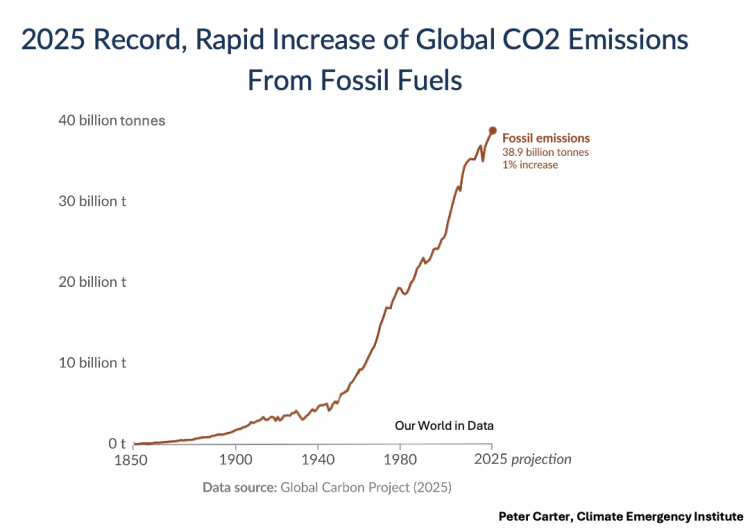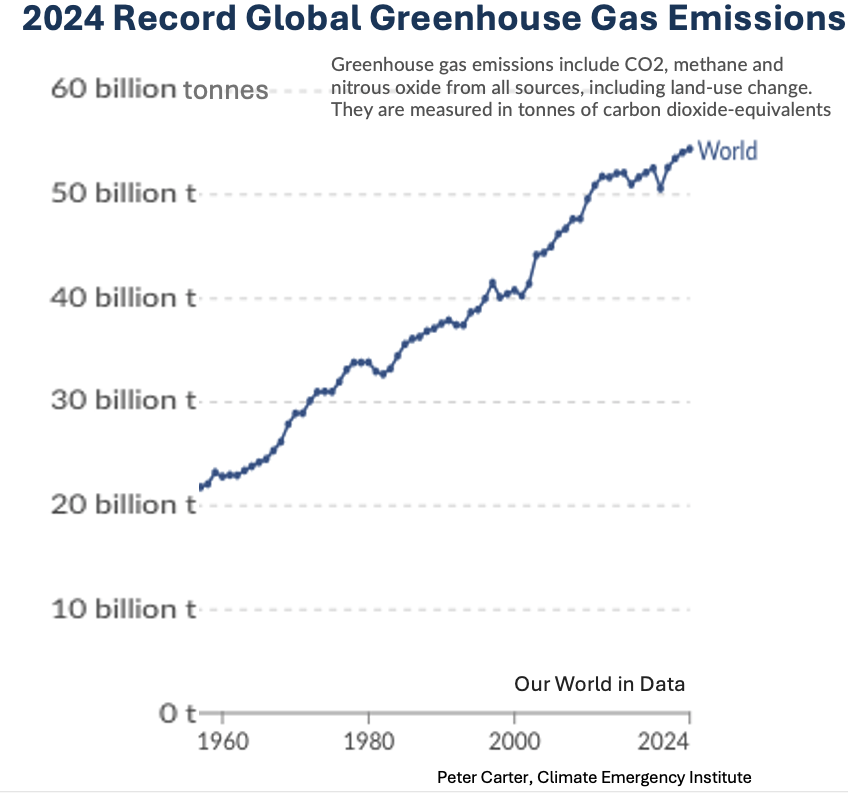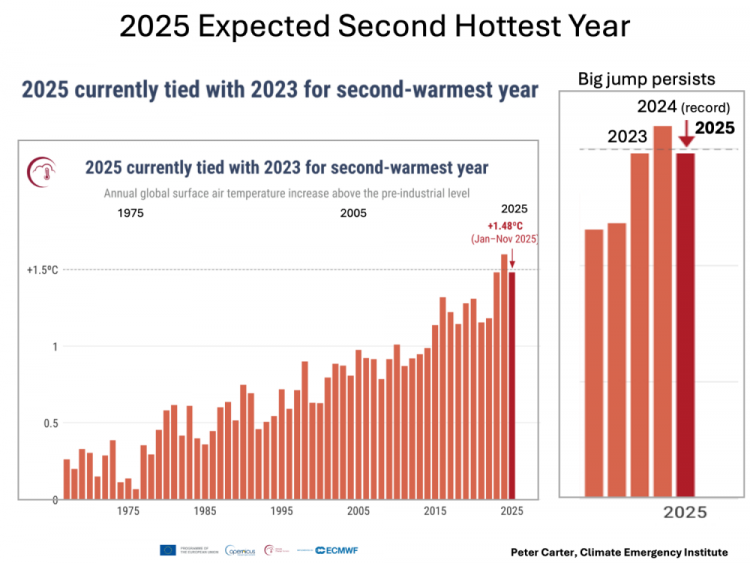Global emissions have to decline by Immediate action (by 2025)
1.5°C AND 2°C limits (1.5C now way too late)
(IPCC 6th Assessment, WG3, SPM C.1)
Dedicated to the world's children
1.5°C AND 2°C limits (1.5C now way too late)
(IPCC 6th Assessment, WG3, SPM C.1)
Dedicated to the world's children
UNEP
Climate Emergency
Climate Emergency
IPCC 6th Assessment (AR6)

Climate Emergency Institute

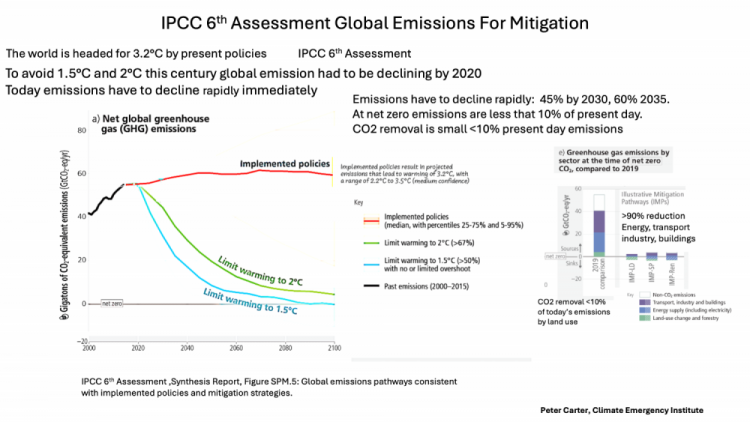
AGU 2024 Town Hall Presentation
(American Geophysical Union) annual conference
(American Geophysical Union) annual conference
2025 Accelerating atmospheric greenhouse gas concentrations and global warming
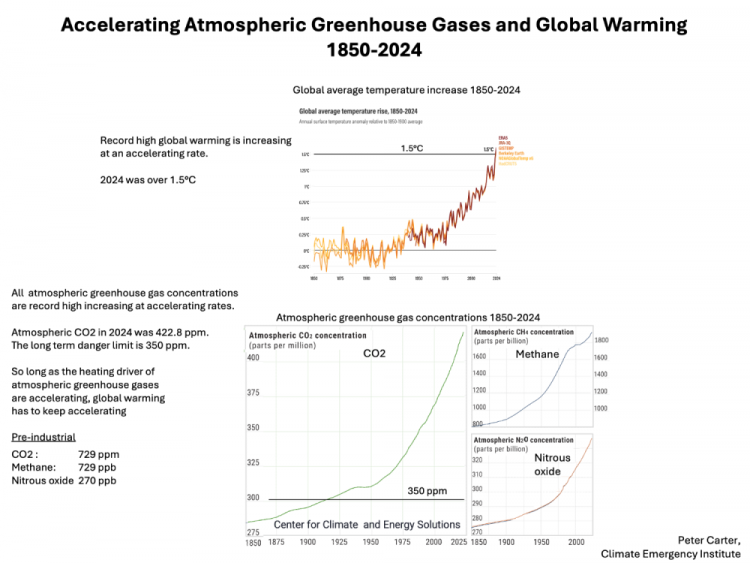
May 2025 was the 21st month in a 22-month period for which the global-average surface air temperature was more than 1.5°C above pre-industrial levels. The run was broken by June 2025.
2025 The global average temperature for the 12-month period ending in November 2025 (December 2024 to November 2025) was 1.49°C
above pre-industrial. (Copernicus)
2025 The global average temperature for the 12-month period ending in November 2025 (December 2024 to November 2025) was 1.49°C
above pre-industrial. (Copernicus)
Global warming
2025 is a 1.5°C year
From January to November 2025 the global temperature increase is 1.5°C and mostly above, except November at 1.49°C.
2025 is a 1.5°C year
From January to November 2025 the global temperature increase is 1.5°C and mostly above, except November at 1.49°C.
Atmospheric greenhouse gas concentrations drive global warming.
All record high, increasing at accelerating rates.
CO2 is responsible for about two thirds of global heating and all the ocean acidification.
All record high, increasing at accelerating rates.
CO2 is responsible for about two thirds of global heating and all the ocean acidification.
Mitigation
of climate change
IPCC AR6
For the 1.5C limit and for the 2C limit
global GHG emissions decline by
2025 at the latest.
of climate change
IPCC AR6
For the 1.5C limit and for the 2C limit
global GHG emissions decline by
2025 at the latest.
GLOBAL GHG EMISSIONS
2024 Global CO2 equivalent emissions-
of CO2 and the other main greenhouse gases all together are record high
2024 Global CO2 equivalent emissions-
of CO2 and the other main greenhouse gases all together are record high
Has list of data sources
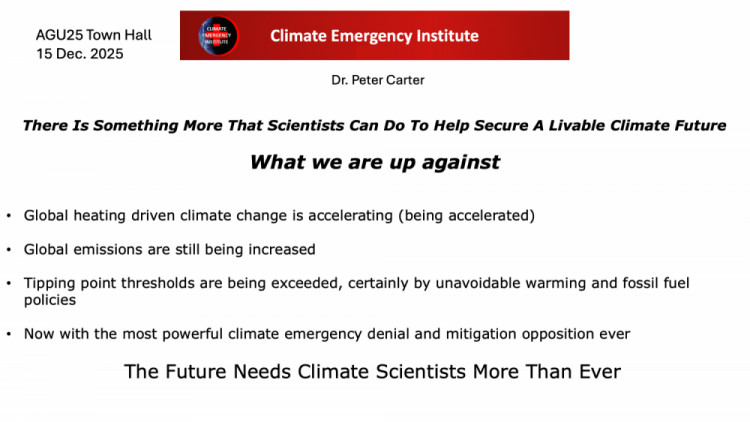
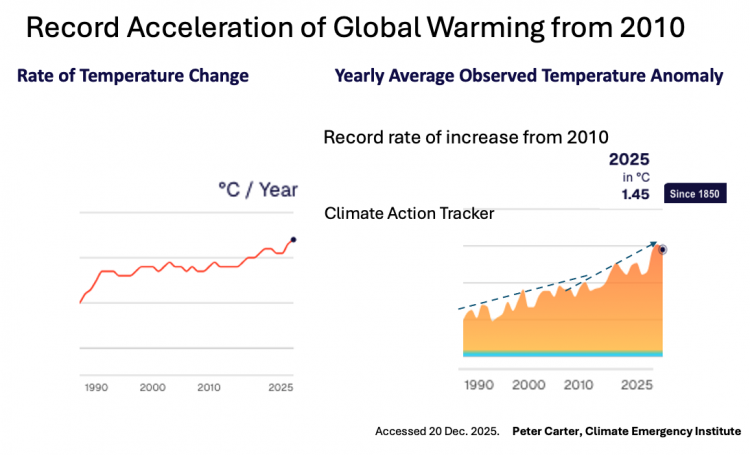
Dec. 2025
